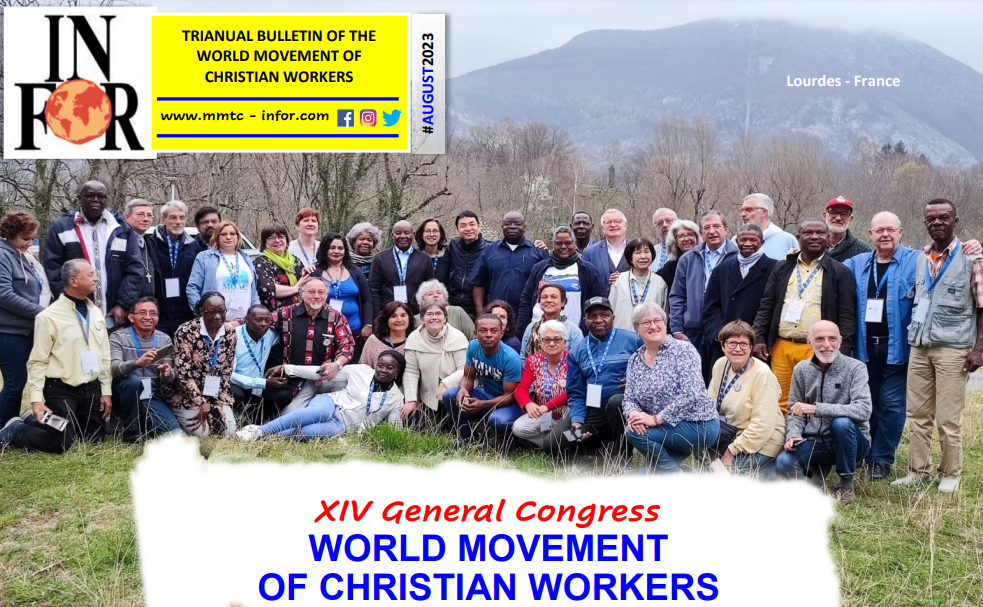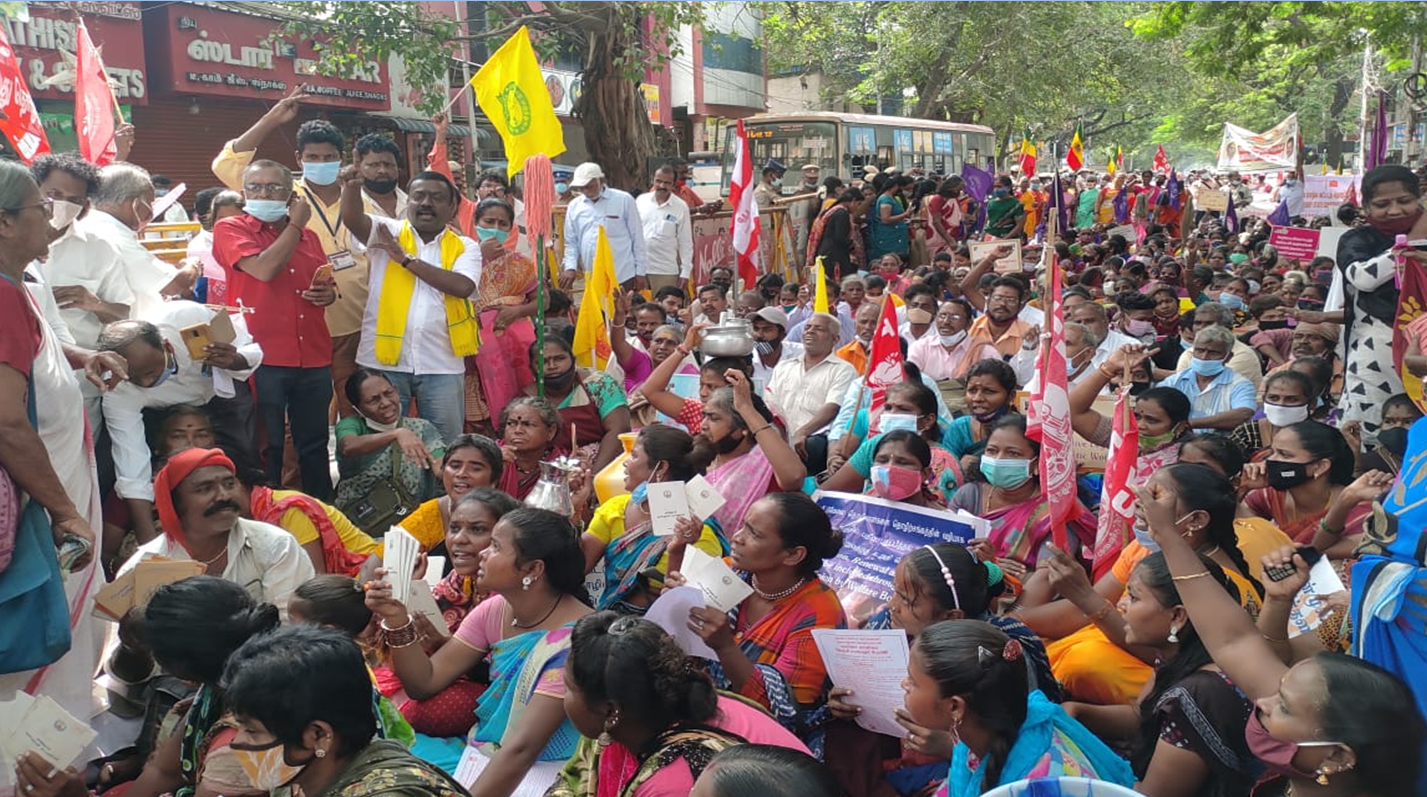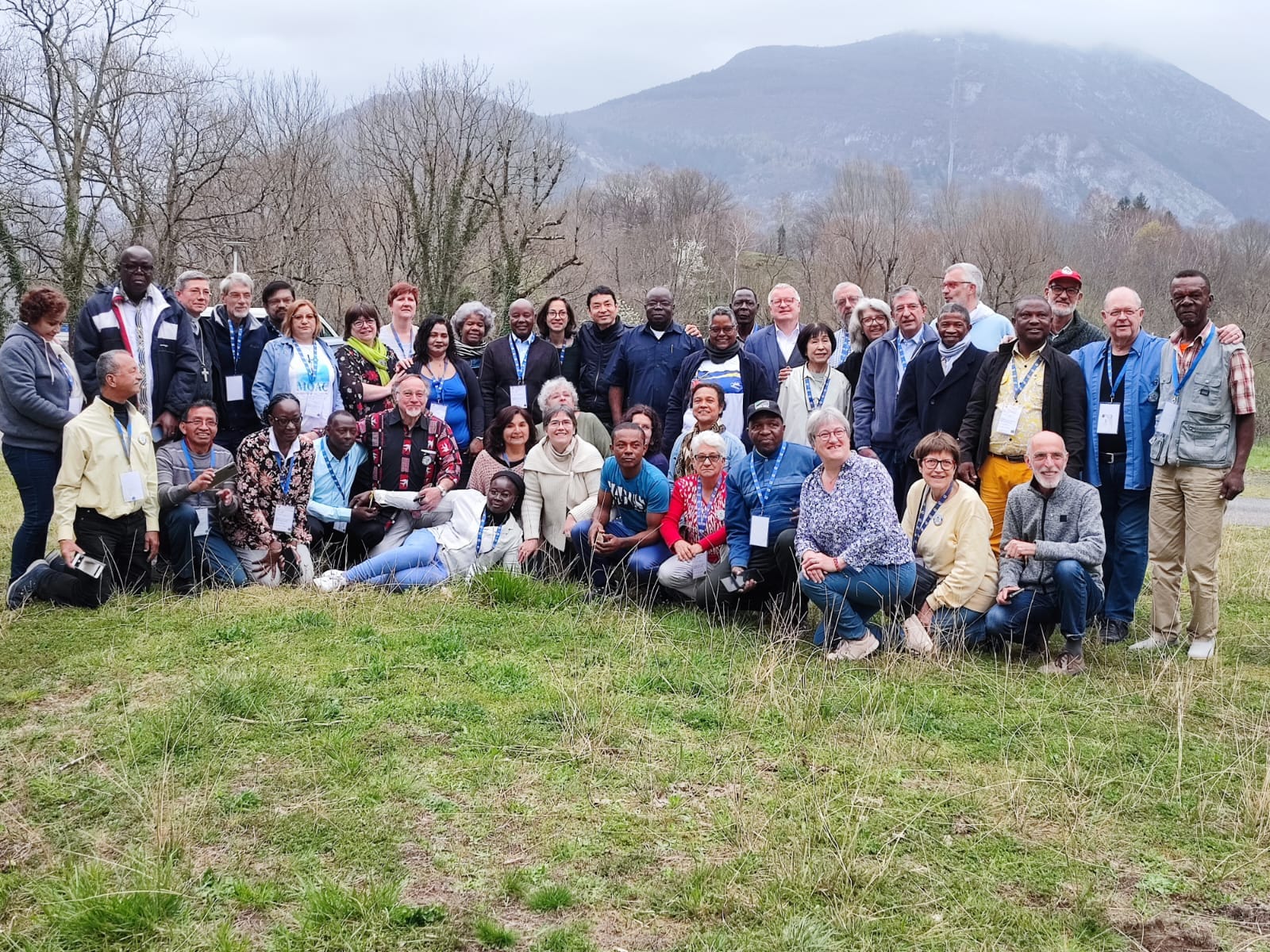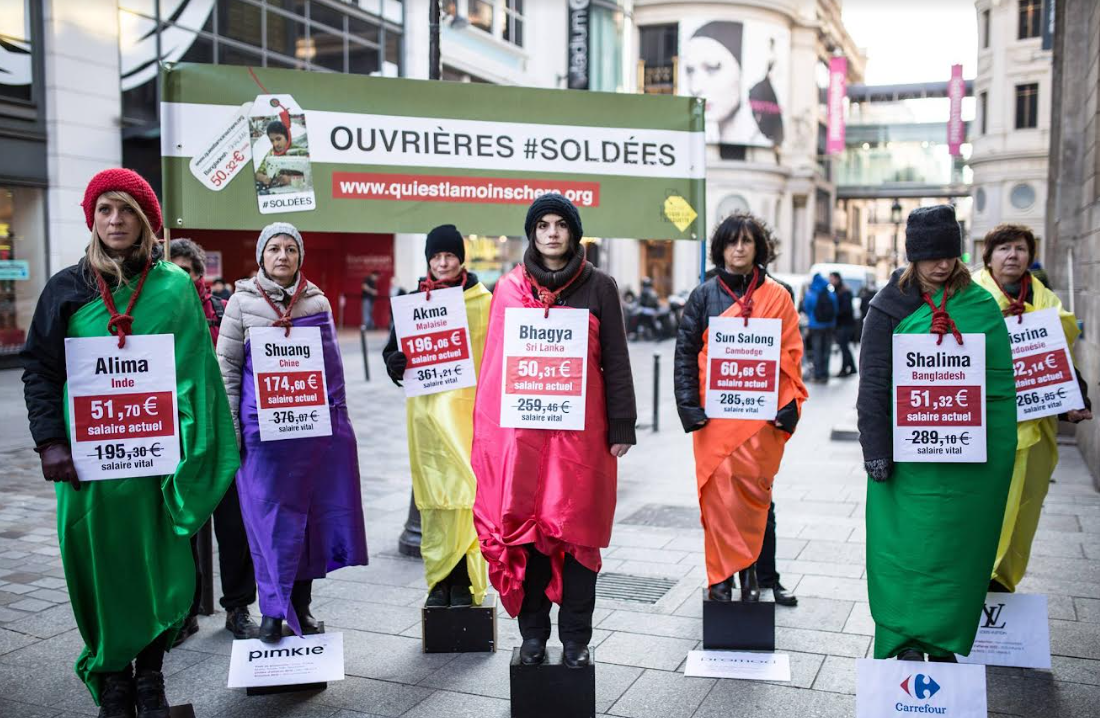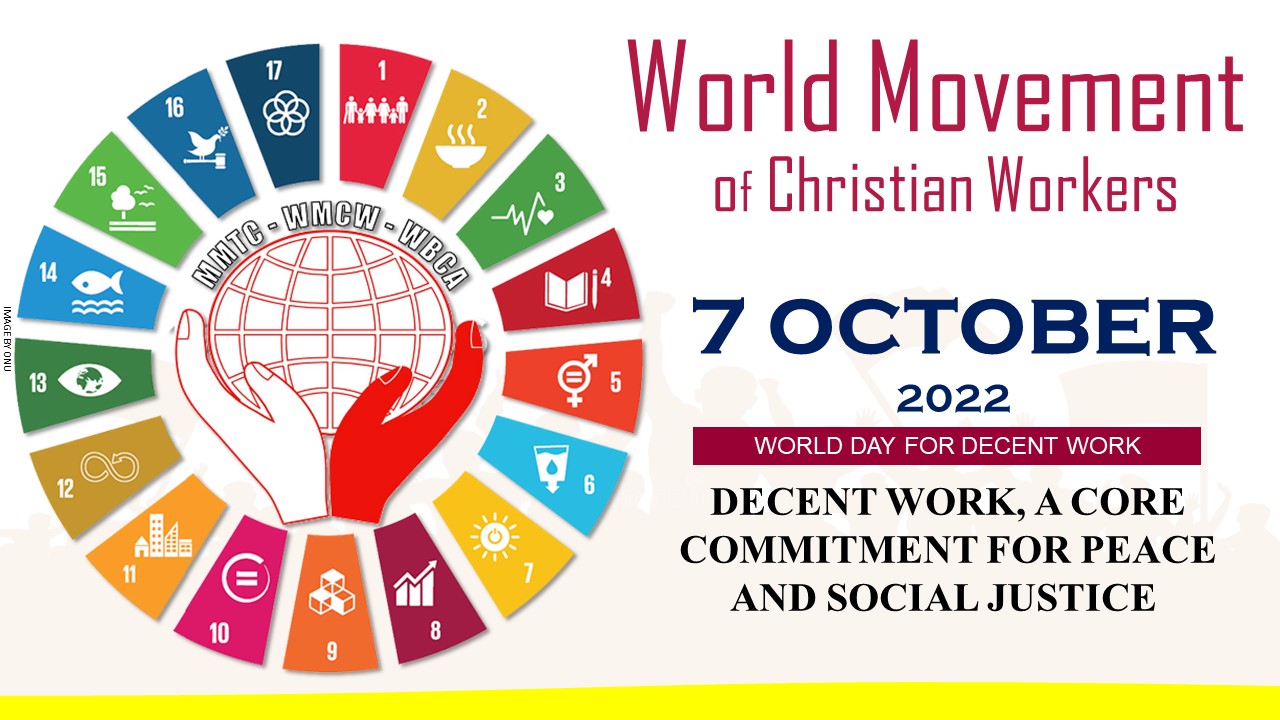
In a world beset by conflict, marked by deep inequalities and ecologically unsustainable, decent work represents a route to peace and social justice. In fact, as the Universal Church1 states, it is access to free, creative, participatory and inclusive work, as well as land and shelter that enables each of us to earn a dignified living. It also ensures that we are collectively able to take care of the planet and make this world a more habitable and beautiful place. Decent work enables us to walk together as a people towards a more dignified life. Access to work for all is an inalienable priority.
We have embraced His Holiness Pope Francis’ appeal to remain engaged and move forward together on the path of intergenerational dialogue, education and work.2
We condemn the exclusion of many migrant workers from employment and social rights. Workers who provide essential services often lack sufficient social recognition and decent working conditions. Working conditions, resulting in increasingly impoverished working families, do not ensure that everyone’s basic needs are met, nor are they compatible with personal and family care needs, particularly in a global context of soaring prices and rampant inflation.
“Informal” work does not promote personal, family and community development and endangers the fundamental principles underlying social cohesion, peaceful coexistence and social justice. It does not promote the implementation of collective social achievements and does not offer many people, particularly young people and women, any prospects for the future.
We would like to emphasise the fact that "the only response to this situation is an expansion of decent employment opportunities", which "is the foundation on which to build justice and solidarity in every community”.3 In that sense, we support proposals to introduce a universal basic income to access the most basic necessities of life as well as reduced working hours to create decent work for all.4
Furthermore, inclusive policies, social dialogue, legislation and international agreements are necessary to ensure that the rights of individuals can be recognised in practice. They should effectively promote the equitable distribution of the benefits of economic growth to ensure authentic and comprehensive human development for everyone, everywhere.
For this reason, we proclaim that “it is more urgent than ever to promote decent and dignified working conditions throughout the world that are oriented to the common good and the safeguarding of
creation. The freedom of entrepreneurial initiatives needs to be guaranteed and supported. At the same time, efforts must be made to encourage a renewed sense of social responsibility so that profit will not be the sole guiding principle”.5
In a wounded world, in which the tragedy of war – of all wars – has once again reminded us of its brutal impact on people’s lives and hopes, each of us must demonstrate unwavering adherence and attention to decent work. Each of us is also responsible for caring for our common home, which needs solid foundations to guarantee life on earth. We should therefore support and recognise that caring roles and care givers are essential. We also call for the protection and conservation of ecosystems.
In fractured and disconnected societies, which are faced with enormous challenges such as the energy transition and circular economy, we propose social dialogue and multilateralism as instruments for ensuring that the needs of individuals and communities are duly met and balanced.
Faced with the globalisation of indifference to the plight of migrants and refugees, we call for policies geared towards the common good and the protection and realisation of human rights, which stem from the sacred dignity of all the world’s peoples. To achieve this aim, steps should be taken to promote inclusion and extend the universal human rights system without discrimination of any kind.
Businesses should take responsibility for their workers, the communities in which they operate and the environmental impact of their activities. For their part, public authorities should develop legal frameworks and boost the creation of inclusive social enterprises based on sustainable and responsible consumption.
Within the Church itself, we would like to promote collective participation and engagement in order to safeguard decent working conditions, particularly within the framework of solidarity actions.
As the World Movement of Christian Workers (WMCW), we renew our commitment to ensuring that “more and more people strive each day, with quiet humility and courage, to be artisans of peace".6
--------------------------------------------------------------------------------------------------------------
|
Message prepared by the Hermandad Obrera de Acción Católica Movement – HOAC SPAIN




